

L&T Energy Hydrocarbon Offshore has received a substantial order from a major client in the Middle East.
The company made the announcement on 29 July, explaining that the order covers numerous offshore packages, including engineering, procurement, construction, and installation of offshore structures, as well as upgrades to existing facilities. The order is worth more than US$1.7bn, according to a press statement issued by the company.
L&T did not name the client or the country it will be operating in.
Calling it an 'ultra-mega' order, L&T said that its hydrocarbon offshore vertical helps the offshore oil and gas industry in a significant manner, and is the main provider of engineering, procurement, construction, installation, and commissioning (EPCIC) solutions.
With strong in-house engineering capabilities, cutting-edge manufacturing yards, and a dedicated fleet of marine vessels, L&T has a proven track record in both shallow and deep-water field development.
Over the last three decades, it has completed complicated projects requiring permanent platforms, subsea pipes and structures, brownfield renovations, and decommissioning.
L&T added that "this ultra-mega order demonstrates the speed and precision with which the Hydrocarbon Offshore business vertical delivers complex projects around the world while complying to world-class safety standards."
Larsen & Toubro is a US$30bn Indian multinational that specialises in EPC projects, high-tech manufacturing, and services across different regions.
In March this year, the company had bagged another ultra-mega project from QatarEnergy LNG.
Qatar had awarded L&T an offshore contract for the North Field Production Sustainability Offshore Compression Project (NFPS COMP), making it the largest single contract ever received by the company at the time.
The scope of work included the engineering, procurement, fabrication, installation, and commissioning of two offshore compression complexes, each consisting of large offshore platforms with compression and power generation facilities, living quarters, flare platforms, interconnected bridges, and other associated structures to be located approximately 80 km off the northeast coast of Qatar.
Commenting on the Qatari development, S.N. Subrahmanyan, Chairman and Managing Director – L&T had commented, “Securing QatarEnergy LNG’s Ultra Mega Offshore Contract – largest single order in our history, is a landmark achievement. This prestigious project strengthens our global energy portfolio while supporting Qatar’s energy security objectives. We look forward to setting new benchmarks in project execution that will reinforce Qatar’s position as a global LNG leader.”
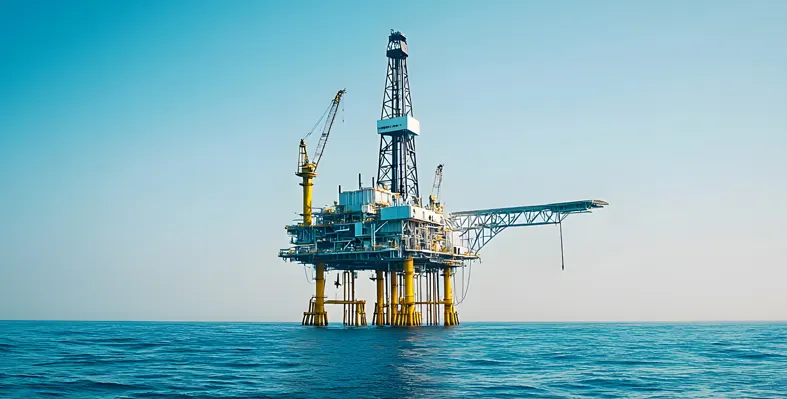

The Middle East and Africa well intervention market, valued at US$2.4bn in 2024, is projected to reach US$4.6bn by 2034, driven by a 6.4% CAGR, fueled by the region's focus on ageing oilfields and rising energy demands.
These figures, published by Global Market Insights (GMI), also reveal that this growth is evident in recent activities across Saudi Arabia, the UAE, and Egypt, where advanced well intervention techniques are enhancing oil and gas production. According to GMI, the offshore segment in this industry is expected to grow by 7% between 2025 and 2034.
In Saudi Arabia, the well intervention market is expected to reach US$510mn by 2034, propelled by extensive proven oil reserves and a focus on mature fields. In July 2024, Saudi Aramco announced discoveries in the Eastern Province, including two unconventional oil deposits, a light oil reservoir, and multiple gas fields, with the Al-Ladam field’s Ladam-2 well producing 5,100 barrels of very light Arabian oil and 4.9 million standard cubic feet of gas daily. These discoveries necessitate well intervention techniques like hydraulic fracturing and acid stimulation to optimise output from low-pressure wells and shale reserves, addressing the increasing presence of such assets.
In the UAE, ADNOC’s US$1.7bn contract awarded to ADNOC Drilling Company in May 2024 for 144 unconventional oil and gas wells is actively progressing this year. Well intervention services, including coiled tubing and wireline logging, are critical for maintaining well integrity and boosting production efficiency in these unconventional resources, reflecting the region’s shift toward complex geological challenges.
In Egypt, BP Egypt’s discovery of a substantial gas reservoir near its Temsah offshore operations in September 2024 spurred increased well intervention activities by July 2025. Companies deployed advanced logging services to assess reservoir changes and optimise production, driven by rising energy consumption and urbanisation. These efforts align with the region’s growing focus on deep and ultra-deep-sea explorations, where well intervention is essential for sustaining output.
Technological advancements are pivotal. In February 2024, Odfjell Technology opened a 10,000 sq m facility in Saudi Arabia’s Eastern Province, enhancing wellbore maintenance and intervention operations. By June 2025, this facility supported expanded drilling and intervention with new machinery and workforce growth. Strategic partnerships and mergers are also strengthening market positions, with companies investing in R&D for innovative intervention tools tailored to mature fields.
Government initiatives are fostering growth. Policies in Saudi Arabia and the UAE prioritise developing mature fields, with the zonal isolation segment expected to generate significant revenues by 2034. These efforts reflect a regional strategy to meet energy demands while extending the life of existing oil and gas assets through advanced well intervention techniques.
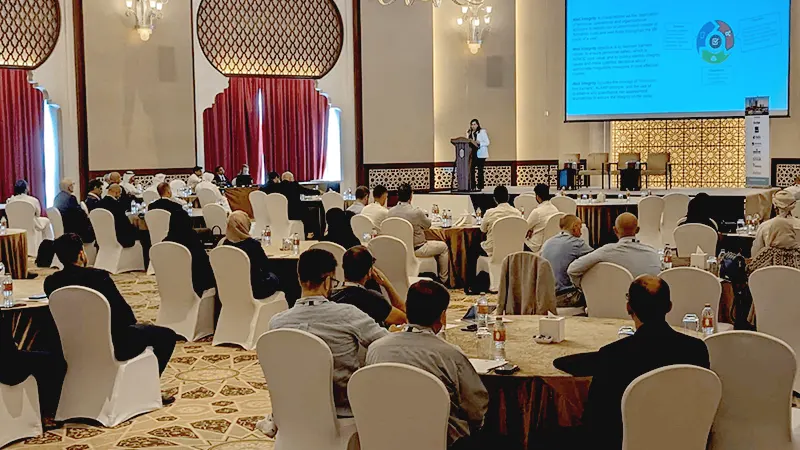
 The newly rebranded MENA WELLS 2025 is set to bring together the Middle East and North Africa’s leading well operations professionals on 9–10 September 2025 at the Bab Al Qasr Hotel, Abu Dhabi.
The newly rebranded MENA WELLS 2025 is set to bring together the Middle East and North Africa’s leading well operations professionals on 9–10 September 2025 at the Bab Al Qasr Hotel, Abu Dhabi.
Previously known as OWI MENA, the event has been refreshed to cover the entire well lifecycle — from integrity and intervention to decommissioning and productivity — reflecting the evolving needs of the industry across both onshore and offshore assets.
This year’s agenda is packed with more than 25 expert presentations, 10 live technology demos, and five dedicated networking sessions, offering valuable insight and opportunities to connect. Delegates will also benefit from exclusive access to PDO’s Workover Journey Workshop and the IMCA Regional Meeting, making it one of the most comprehensive well-focused gatherings in the region.
Senior engineers, technical leads, and decision-makers from organisations including ADNOC, Petrobel, PDO, and EGPC will take the stage to share real-world case studies and practical lessons. Topics include advanced well diagnostics, expanding the use of glass plug and steel patch technologies, managing legacy assets, and improving diver safety during subsea decommissioning.
New sessions will also highlight how AI, data analytics, and next-gen materials are reshaping maintenance planning and enhancing long-term well integrity. Whether you’re involved in drilling, completions, production, or abandonment, MENA WELLS 2025 delivers timely, relevant content to help teams boost performance while meeting rising safety and sustainability expectations.
The event is designed to support collaboration and knowledge exchange — from the technology showcase hall to the VIP meeting area, where sponsors, operators, and solution providers can discuss projects and build strategic partnerships in a focused setting.
"It was an amazing conference where we learned about new technologies and some very good presentations on production optimization and plug and abandonment." said Muhammad Farooqn Zubair, Senior Completion and Workover Engineer, ADNOC.
Early bird rates are available until 8 August 2025, so now is the time to secure your place. For full information, download the brochure at https://events.offsnet.com/MENAWells2025#/Brochure


Borr Drilling Limited has announced new contract commitments for four of its premium jack-up rigs, increasing the number of contracted rigs in its 24-unit fleet to 23.
The new awards represent a combined duration of approximately 1,300 days, including fixed-priced options, and are expected to generate more than US$129mn in revenue.
These latest contracts align with the company’s strategy to optimise near-term fleet utilisation.
As a result, Borr has raised its contract coverage to 84% for 2025 at an average dayrate of US$144,000, and to 45% for 2026 at an average dayrate of US$141,000.
In the Middle East, the warm-stacked “Arabia II” rig has secured a binding Letter of Award from an undisclosed client.
The contract will start in September 2025 and includes a firm 500-day duration with a 200-day unpriced option. A performance-based incentive is also included, rewarding operational excellence.
In Southeast Asia, the “Thor” and “Gunnlod” rigs have both received binding Letters of Award from an undisclosed customer.
“Thor” will begin a 240-day well programme in October 2025, while “Gunnlod” will start a 100-day programme in September 2025, immediately following its current engagement.
Both contracts include fixed-price options for one additional well each, estimated at 80 days.
Meanwhile in Mexico, PEMEX has issued a 30-day suspension notice for the “Odin” rig, effective from early June.
In response, Borr has secured a Letter of Intent from an independent oil company for a 60-day accommodation programme starting in July, with further priced drilling options that could extend the engagement through Q2 2026.
With this deal, four of Borr’s seven rigs in Mexico are now working with independent clients.
So far in 2025, Borr has secured 13 new commitments, totalling 3,010 potential contract days and approximately US$366mn in potential revenue, including firm terms and options.
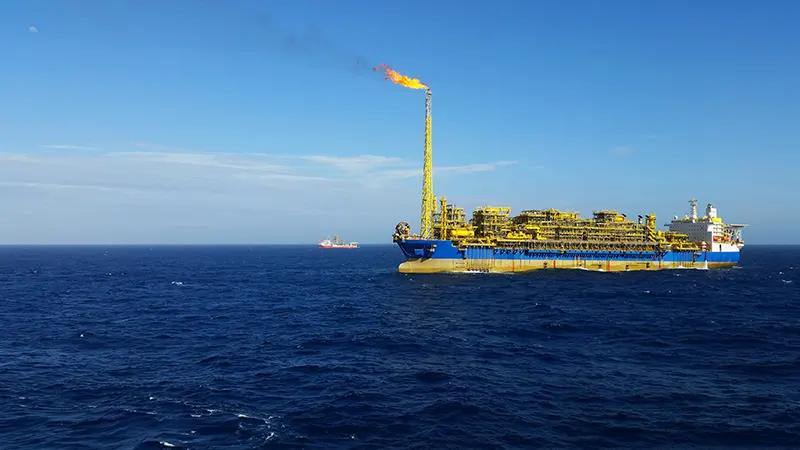
 The floating production storage and offloading (FPSO) vessels deployed for a significant deepwater gas development in the Turkish area of the Black Sea will be equipped with titanium stress joints (TSJ) over the next two years
The floating production storage and offloading (FPSO) vessels deployed for a significant deepwater gas development in the Turkish area of the Black Sea will be equipped with titanium stress joints (TSJ) over the next two years
The US$31mn deal has been bagged by precision engineering group, Hunting plc, who will be delivering six TSJs as part of phase three of the major project. These TSJs, which will be arriving from the company's Subsea Spring business unit in Houston, Texas, are backed by patented 'Direct Pull-thru Tube' technology. The TSJs will be used on the second and third vessels serving the project.
Hunting is also serving the phase two development contract that was reached last year, with completion awaited in 2026. The back to back awards have generated US$51.6mn in revenue for the company.
Speaking of the latest contract, Jim Johnson, Chief Executive, said, "Our continued success in the Turkish area of the Black Sea demonstrates the international demand and strength of Hunting's titanium stress joint product offering. This order continues the Group's run of success deploying this product line into key offshore regions including the Black Sea, Guyana, and the Gulf of Mexico.
"Our revenue opportunities have also been expanded with the acquisition of FES in June, which forms part of our 2030 Strategy to target revenue from the longer cycle segment of the industry, which is less impacted by short-term commodity price volatility."
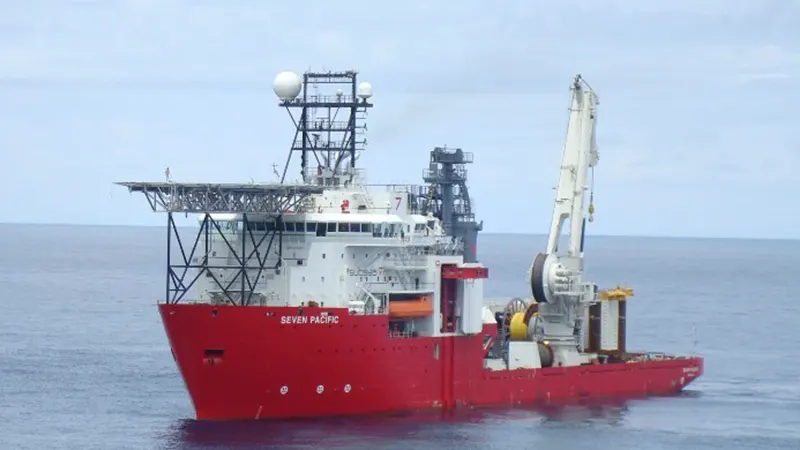
 On Friday, 4 July 2025, Subsea7 announced it has been awarded a sizeable offshore contract in Egypt. The contract involves the engineering, procurement, commissioning, and installation (EPCI) of flexible pipelines, umbilicals, and other subsea components. These will connect new wells to existing offshore infrastructure through a tie-back system.
On Friday, 4 July 2025, Subsea7 announced it has been awarded a sizeable offshore contract in Egypt. The contract involves the engineering, procurement, commissioning, and installation (EPCI) of flexible pipelines, umbilicals, and other subsea components. These will connect new wells to existing offshore infrastructure through a tie-back system.
Subsea7 did not disclose the exact value of the contract but categorised it as "sizeable," typically meaning it falls between US$50mn and US$150mn.The project aims to support ongoing oil and gas developments offshore Egypt. Subsea7 will carry out project management and engineering from its offices in France, Portugal, and Egypt. These activities will begin immediately.
Offshore installation work is scheduled to begin in 2026. The project is expected to improve connectivity and efficiency in Egypt’s offshore energy sector. This contract adds to Subsea7’s portfolio of offshore work and strengthens its position in the Eastern Mediterranean region. The company continues to play a key role in delivering complex subsea infrastructure for global energy projects.
Subsea7 is known for its experience in subsea engineering and has successfully executed similar projects worldwide. This new contract highlights its ongoing relationship with operators in the Middle East and North Africa.The announcement reflects continued investment in offshore energy developments in Egypt, as the country seeks to increase production and improve infrastructure in its oil and gas sector.
Overall, the award marks another important step in Subsea7’s global operations and regional presence. David Bertin, Subsea7’s Senior Vice President GPC East, said: “Our early engagement has been instrumental in shaping a shared vision and delivering innovative, efficient solutions. This award is a testament to the strength of our collaboration, our proven track record, and our commitment to safe, high-quality execution. We are pleased to be able to support our client in enabling and executing such a strategically important project in Egypt.”
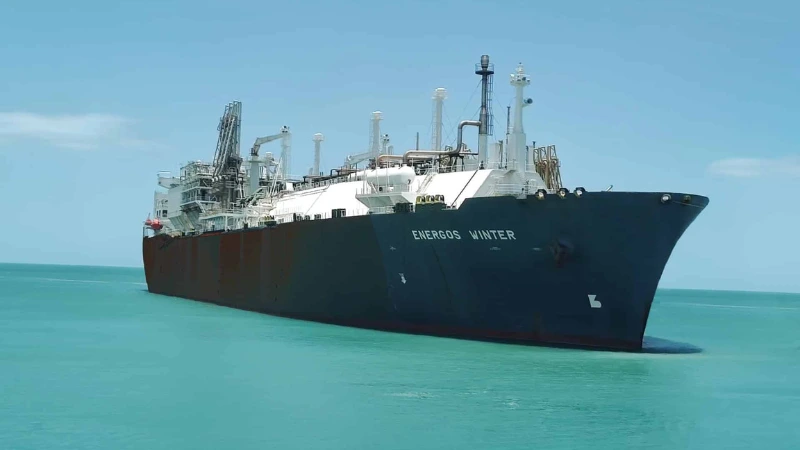

New Fortress Energy Inc, through one of its subsidiaries, has signed a five-year agreement for the deployment of the Energos Winter, a 138,250 m³ floating storage and regasification unit (FSRU).
The agreement marks a significant step in New Fortress Energy’s continued expansion into key liquefied natural gas (LNG) markets and reinforces its growing presence in the Eastern Mediterranean.
The company is working in partnership with the Egyptian Natural Gas Holding Company (EGAS) to support Egypt’s LNG infrastructure and energy import capabilities.
Under the terms of the deal, the Energos Winter will be stationed at EGAS’s LNG import terminal in Damietta, on Egypt’s northern coast.
This deployment represents New Fortress Energy’s second FSRU operating in Egypt.
The Energos Winter is expected to join the Energos Eskimo, which is already in service in the country, as early as August this year.
The addition of a second unit is anticipated to enhance EGAS’s import capacity and improve energy security for Egypt and the surrounding region.
“We are pleased to reinforce our relationship with EGAS by way of our deployment of a second FSRU to Egypt. This deal enhances NFE’s goals of providing reliable and cost-effective energy across the globe,” said Chris Guinta, CFO of New Fortress Energy.
“EGAS is pleased to strengthen its long-standing partnership with New Fortress Energy through the execution of a second Regasification Service Agreement. Under this agreement, NFE’s second FSRU, Energos Winter, will provide regasification services at the Damietta terminal, contributing to the security of natural gas supply for the Arab Republic of Egypt over the next five years,” said Yasseen Mohamed, executive managing director of EGAS.
New Fortress is a global energy infrastructure company which develops, owns, and operates a range of natural gas and LNG infrastructure, supported by an integrated fleet of vessels and logistics assets. Earlier this year, the company announced multiple agreements to supply gas to the Carribean region such as the Dominican Republic, Jamaica and Puerto Rico.
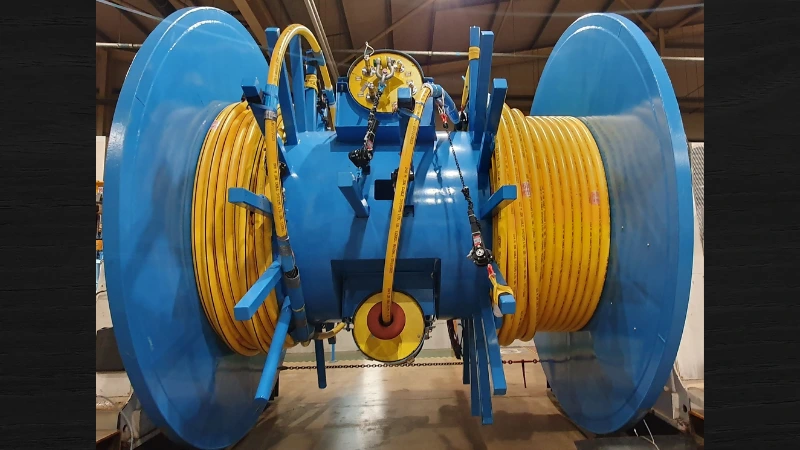

JDR Cable Systems, a leading global supplier and service provider of subsea cables and part of the TFKable Group, has secured a major service contract from Indian engineering giant Larsen & Toubro (L&T) for offshore operations in the Middle East.
Under the agreement, JDR will conduct testing on 14 umbilical cables across multiple offshore platforms, focusing on the critical hydraulic and electrical control systems that underpin platform safety and performance.
The work scope includes pre-deployment testing, continuous monitoring during the cable-laying process, and integration testing to ensure the umbilicals operate reliably throughout the installation. Offshore technicians, equipment, and dedicated technical support will be provided by JDR to guarantee proper oversight of the cables at every stage.
The project will be coordinated from JDR’s UK service centre in Newcastle, with a specialist team rotating offshore for multiple mobilisations to ensure the safe and efficient delivery of the work scope.
Alan Combe, Service Sales Manager EMEA at JDR, said, “Securing this contract reflects the strength of our service offering and the capability of our team to deliver technically complex service work in the Middle East. It’s an exciting region, full of opportunity and innovation, and an important part of JDR’s long-term focus. We’re looking forward to working closely with the L&T team throughout the installation and testing phases.”
“The Middle East continues to present strong opportunities for JDR, both for our subsea cables and our service offering,” said Carl Pilmer, Chief Sales Officer at JDR. “As we consolidate our presence in the Middle East, this project is a good example of how we’re supporting customers in the region with reliable and high-quality delivery.”
JDR Cable Systems, part of the TFKable Group, is a global leader in subsea power cable and umbilical system solutions for the offshore oil, gas, and renewables sectors. With over 30 years of technical expertise, JDR designs, manufactures, installs, and supports high-quality, reliable systems backed by 24/7 service across the product lifecycle. Its parent company, TFKable Group, headquartered in Poland, is a major global cable manufacturer with a diverse portfolio of 25,000 cable types sold in 80 countries, supported by extensive European production facilities and a strong commitment to sustainable growth.
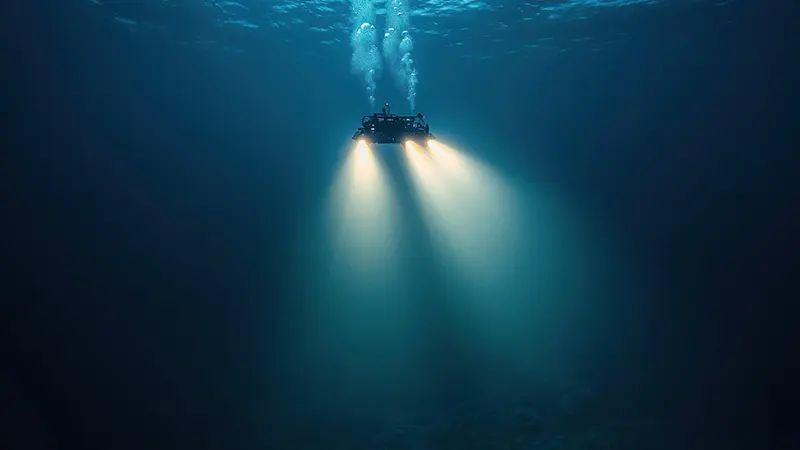
 The Forum Energy Technologies (FET) Subsea product line has secured a contract to provide two work class remotely operated vehicles (ROVs) to CCC (Underwater Engineering) S.A.L (CCC (UE)), the UAE-based offshore construction organisation
The Forum Energy Technologies (FET) Subsea product line has secured a contract to provide two work class remotely operated vehicles (ROVs) to CCC (Underwater Engineering) S.A.L (CCC (UE)), the UAE-based offshore construction organisation
Kevin Taylor, Vice President - Operations, Subsea Technologies said, “CCC (UE) has long been a user of FET ROVs and we are pleased that we are able to further consolidate our relationship with this contract, our first directly with the company.
“These particular subsea assets are robust and built to operate in the harshest of subsea environments. Their reliability is renowned around the world and we look forward to working with CCC (UE) to enhance its global subsea service offerings.”
Tavis Letherby, CCC (UE) ROV/Survey Manager, said, “With acquisition of new DPIII DSCV, Wadad Aletheia, it was important to ensure the vessel has the right WROV systems, capable of working down to a depth of 3,000m, in line with the vessel’s maximum working depth. The purchase of the XLX-C 200HP systems, will complement the DPIII DSCV Wadad Aletheia, ensuring its full potential for subsea operations."
The FET Perry XLX-C 3000m systems will be used for construction, drill support, pipeline and platform inspection, survey, salvage and cleaning services. The first of the two ROVs will be delivered in November 2025, with the second scheduled for delivery in June 2026.
The XLX-C features significantly enhanced performance across the full range of demanding intervention and survey tasks without compromising its reliability. This work-class ROV is compact yet powerful, delivering 200hp, 3000kg through-frame lift and advanced hydraulic tooling capabilities. The ROV features the ICE Unity control system with high-precision auto functions and dynamic positioning, making it ideal for demanding subsea operations.
CCC (UE) offers comprehensive solutions for offshore operations worldwide, including inspection, repair and subsea asset installation.
The two ROVs, which will have a Type 5C Top Hat Tether Management System and 3300 metre umbilical, are being manufactured at FET’s UK facility at Kirkbymoorside, North Yorkshire, UK. FET’s ROVs are used globally to support underwater industry applications, including in defence, traditional and sustainable energy, telecommunications, mining, aquaculture and academia.


Egypt is set to enhance its natural gas production with the operation of a major new well, Zohr-6, in the Zohr field, located offshore in the Mediterranean Sea.
The details of this project were given to Al Arabiya Business by an Egyptian government employee.
According to Al Arabiya Business, this well is projected to yield 40 to 50 million cubic feet of gas daily, contributing significantly to Egypt’s energy needs.
The initiative, led by the Egyptian Ministry of Petroleum and Mineral Resources in collaboration with Italy’s Eni through their joint venture Petrobel, aims to address rising domestic demand, particularly for electricity and industrial sectors.
To ensure efficient production, Eni is implementing advanced water management techniques at Zohr-6, including chemical injections to prevent water leakage during gas extraction.
These efforts are part of broader operations to maintain the field’s output, which currently accounts for 1.1 to 1.2 billion cubic feet per day, which is approximately 30% of Egypt’s total gas production.
The Ministry’s strategic focus on the Zohr field includes ongoing investments, with US$13.5bn already allocated out of a US$39bn partnership with Eni since the field’s development began.
In early 2025, the arrival of a drilling vessel signaled intensified efforts to expand Zohr’s capacity.
Recent drilling and evaluation of 16 wells in Egypt’s Mediterranean concessions between July 2024 and May 2025 led to five new gas discoveries, promising a medium-term boost to national production.
Additionally, a US$120mn contract awarded to National United Petroleum Services Company (NESR) in March 2025 supports well maintenance through specialized chemical supplies.
Egypt’s gas strategy also addresses a production-consumption gap, with the government securing over 1.6 billion cubic feet per day through pipelines and LNG imports to meet 25-30% of the shortfall.
The Zohr-6 well’s activation in June 2025 marks a critical step in reducing this dependency and strengthening Egypt’s energy security.
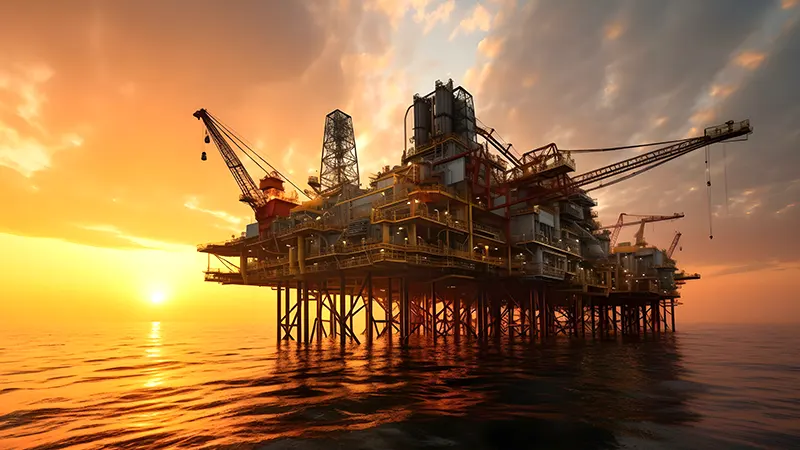

In March 2008, Libya produced 1.75 million barrels of oil per day (bpd). Since then, thanks to political instability, it has never reached that figure again. Will 2025 be the year Libya goes back to its peak crude oil production?
The country is the richest in terms of oil reserves in Africa, and its offshore oil and gas sector is a cornerstone of its energy industry.
In the last few years, some significant developments have begun to shape the Libyan oil market, which could signal positive news for the industry.
Recent developments in offshore fields like Bouri, Bahr Essalam, Sabratha, and Al Jurf, alongside new exploration initiatives, highlight Libya’s efforts to bolster offshore production through well intervention and infrastructure upgrades.
In fact, in December last year, Libya produced 1.4 million bpd, which is its best performing figure since 2013. The country has ambitions to reach 1.6 million bpd by year end.
A key development is the February resumption of gas production at Well CC18 in the Bahr Essalam offshore field, operated by Mellitah Oil and Gas (a joint venture between Libya’s National Oil Corporation (NOC) and Eni).
This restart likely involved well interventions such as coiled tubing or acid stimulation to address reservoir issues like scale buildup, ensuring consistent gas flow to the Mellitah treatment plant for domestic and European markets.
Similarly, the Sabratha Compression Project, in its execution phase with startup planned for late 2025, aims to enhance gas production.
Compression projects often require interventions like gas-lift optimisation to maintain well productivity, underscoring the role of advanced techniques in Libya’s offshore strategy.
The Bouri Gas Utilisation Project, another significant initiative, focuses on increasing gas output from the Bouri field, one of Libya’s largest offshore assets.
Operated by Eni and NOC, this project involves installing equipment to optimise production, likely supported by interventions such as perforating or chemical treatments to counter declining reservoir pressure.
Eni’s Structures A&E Project, with drilling set for mid-2025, channels gas from two offshore fields to Mellitah.
This project, involving new platforms and subsea infrastructure, will likely require well interventions like hydraulic fracturing to optimise new wells and ensure long-term productivity.
The adoption of AI-driven technologies by Eni suggests potential advancements in intervention efficiency, such as real-time monitoring to guide coiled tubing or wireline operations.
In January 2025, NOC launched its first exploration bid round in 17 years, offering 22 onshore and offshore blocks, including areas in the offshore Sirte Basin.
This initiative, attracting interest from companies like Repsol and BP, signals future offshore development.
New wells will eventually require interventions like well testing or stimulation to bring them online efficiently, building on Libya’s estimated 48 billion barrels of oil reserves, much of which lies offshore.
However, political instability poses significant risks. Only last month, Libya’s eastern-based government threatened a force majeure on oil fields and ports, following attacks on NOC facilities.
This echoed a 2024 shutdown that halted 700,000 bpd, impacting offshore fields like Al Jurf.
Such disruptions necessitate well interventions to restore production post-shutdown, as seen in Al Jurf’s history of workovers after prolonged closures.
Despite these challenges, Libya’s US$3–4bn investment plan for 2025 prioritises offshore infrastructure and interventions to achieve its production targets, reinforcing the sector’s critical role in the nation’s energy landscape.
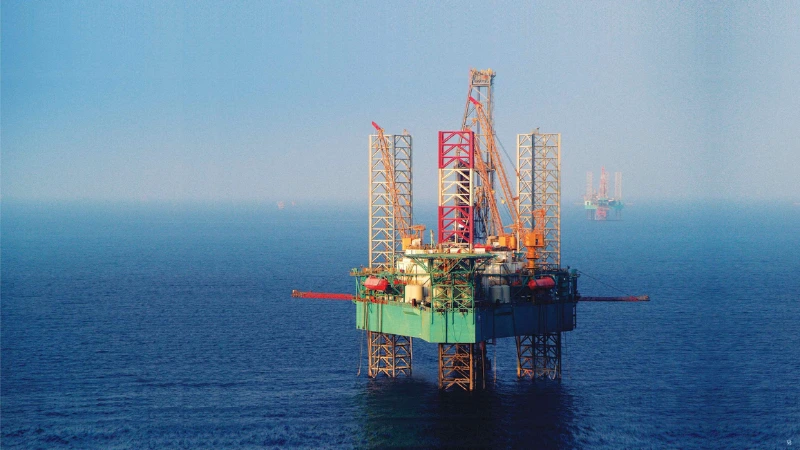

ADNOC Drilling Company has announced the award of a US$1.15bn contract from ADNOC Offshore for the provision of two jack-up rigs over a 15-year period, supporting the continued expansion of ADNOC’s offshore operations.
The contract builds on existing agreements and is expected to generate long-term revenue with attractive returns.
With a fleet of 47 offshore rigs, ADNOC Drilling operates one of the largest offshore drilling fleets globally, offering high levels of flexibility and reliability to meet growing demand while maintaining operational excellence and safety standards.
The newly contracted rigs are the latest generation of jack-ups and have been prepared for deployment at the Lamprell shipyard in Sharjah.
The project aligns with ADNOC Drilling’s focus on delivering high-quality solutions while maximising In-Country Value, supporting local partnerships, and advancing the UAE’s economic growth through homegrown innovation.
The rigs will feature advanced digitalisation, AI, and real-time data analytics to enhance safety, efficiency, and operational uptime.
Operations are expected to begin around the end of Q2 2025, with revenue contributions starting in the second half of the year.
The deal reinforces ADNOC Drilling’s medium-term outlook and underpins its strategy for stable, sustainable growth.
Abdulrahman Abdulla Al Seiari, ADNOC Drilling CEO, said, “This new contract is a clear vote of confidence in ADNOC Drilling’s technical leadership, operational excellence and long-term value creation. By integrating artificial intelligence (AI), automation and digitalisation capabilities, the two new jack-up rigs, our newest and most advanced jack-up rigs, will ensure superior efficiency and performance for our client ADNOC Offshore.
"With this contract securing operations until 2040 and beyond, and providing strong, resilient and predictable returns, we are not only reinforcing our role in achieving ADNOC’s production capacity milestones but also driving sustainable long-term growth for our shareholders.”
Tayba Abdul Rahim Al Hashemi, chief executive officer of ADNOC Offshore, said, “In the past month, ADNOC Offshore has awarded long-term contracts worth c. US$3.6bn to ADNOC Drilling to safely accelerate our production capacity growth plans. ADNOC Drilling’s advanced fleet of jack-up and island rigs, market leading integrated drilling services and cutting-edge technologies are critical enablers to deliver ADNOC’s ambitious strategy. This partnership will help us to sustainably meet the world’s growing energy demands and maximise value for shareholders for decades to come.”
Page 4 of 12
Copyright © 2025 Offshore Network